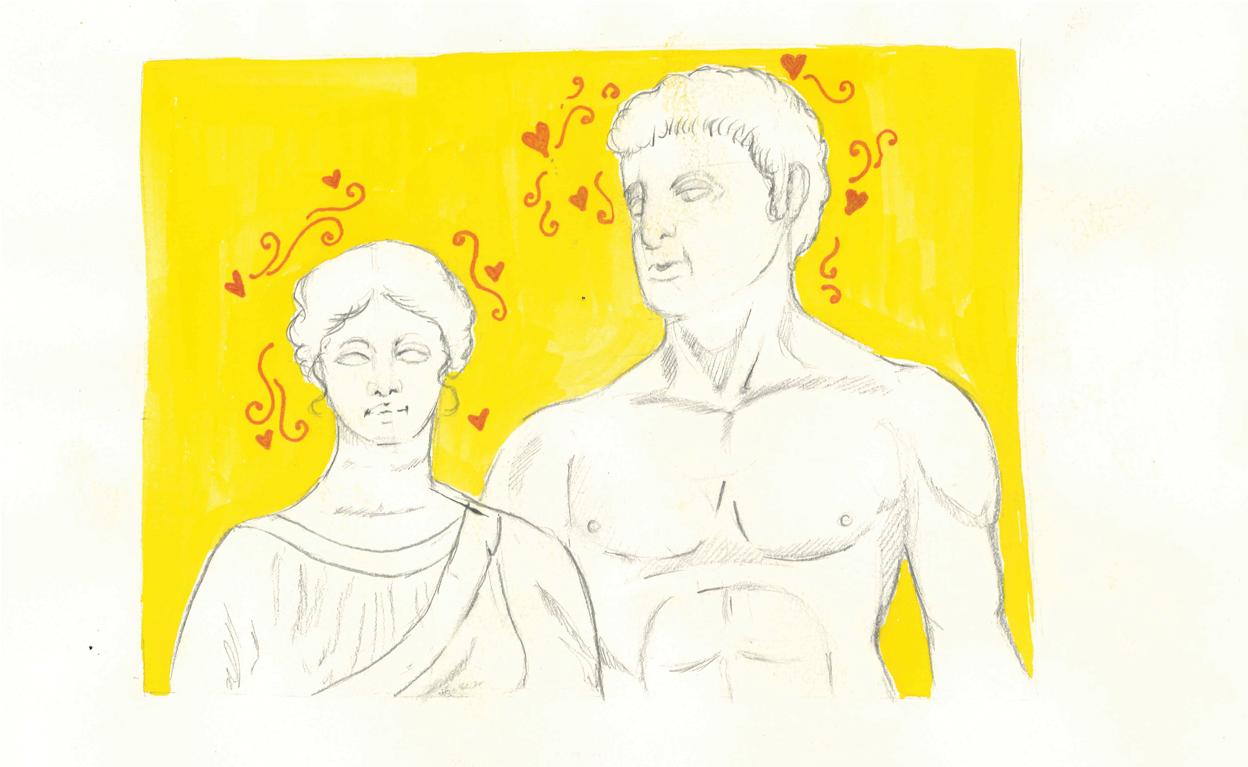This Tuesday marks the beginning of Trinity’s 2017 Lennox Seminar Series entitled Love, Art, and Power in the Roman Empire. Through November, lecturers from different universities will speak on topics relating to themes of power and love within works of literature and art left behind by the Roman empire.
Intense transformations in Mediterranean life were seen throughout the first and second centuries A.D. due to a consolidation in imperial control. The historical records of these two centuries are fraught with war, uprisings, political drama and philosophical exchange. The famous political regimes of Caligula, Claudius, Nero and Hadrian rose and fell with their fair share of blood and assassinations. The Colosseum opened for the first time. The Empire began to reach as far as Jerusalem and Southern Britain.
But why this, and why now?
At the beginning of September, the San Antonio Museum of Art opened a new and unique exhibition: Antinous, the Emperor’s Beloved: Investigating a Roman Portrait. The show centers on a single marble portrait of Antinous, an attractive young man that was favored by the emperor Hadrian. After drowning in the Nile River, he was deified by the emperor. Though all that remains of this marble statue is the head, Antinous seems to be portrayed as a Bacchus-like figure. You don’t have to be HUMA alumni to see something more than brotherly affection at play.
The first lecture comes from Carolyn Vout, a fellow and university reader in Christ’s College at the University of Cambridge. On Sept. 12, Vout will speak at the San Antonio Museum of Art on the topic of sexuality. Using art, Vout can reconstruct the nature of Rome’s sex life and draw connections between the history of empire and the history of sexuality.

On Oct. 2, Craig Williams will give a lecture in the Fiesta room on a rather peripheral type of narrative, one that deals with the impulsive characteristics of the time. Animals falling in love with human beings necessitates discussion on the implications of power, love and humanity. Williams is a classics professor from the University of Illinois.
Also from the University of Cambridge, Tim Whitmarsh will speak at Trinity on the relationship between Hadrian and Antinous on Nov. 6. Whitmarsh is a professor of Greek culture and is renowned for his research in Greek novels and literature.
Molly Swetnam-Burland will close out the seminar on Nov. 27. A professor at the College of William and Mary in Virginia, Burland specializes in Roman material culture as well as social history. Her lecture will discuss the role of Egypt in Augustan Rome after the Battle of Actium, a confrontation in the final war of the Roman Republic that allowed Octavian to take power over Mark Antony and Cleopatra.
The Lennox Seminar Series is a Trinity tradition that brings in speakers from across the globe to promote discussion and to take an in-depth look at a topic from multiple angles and disciplines. This year, students have an altogether unique opportunity to see art first-hand in the museum before joining in the conversation with experts in literature and history.







